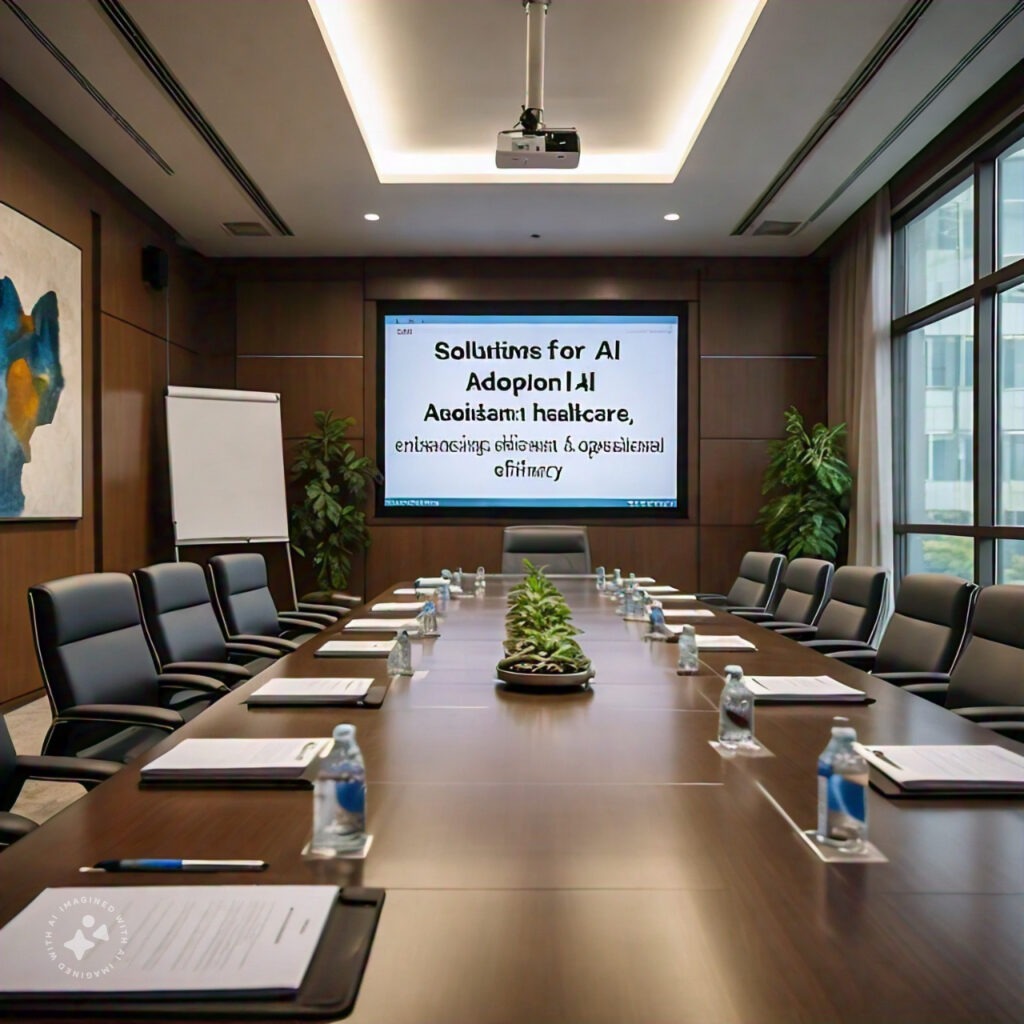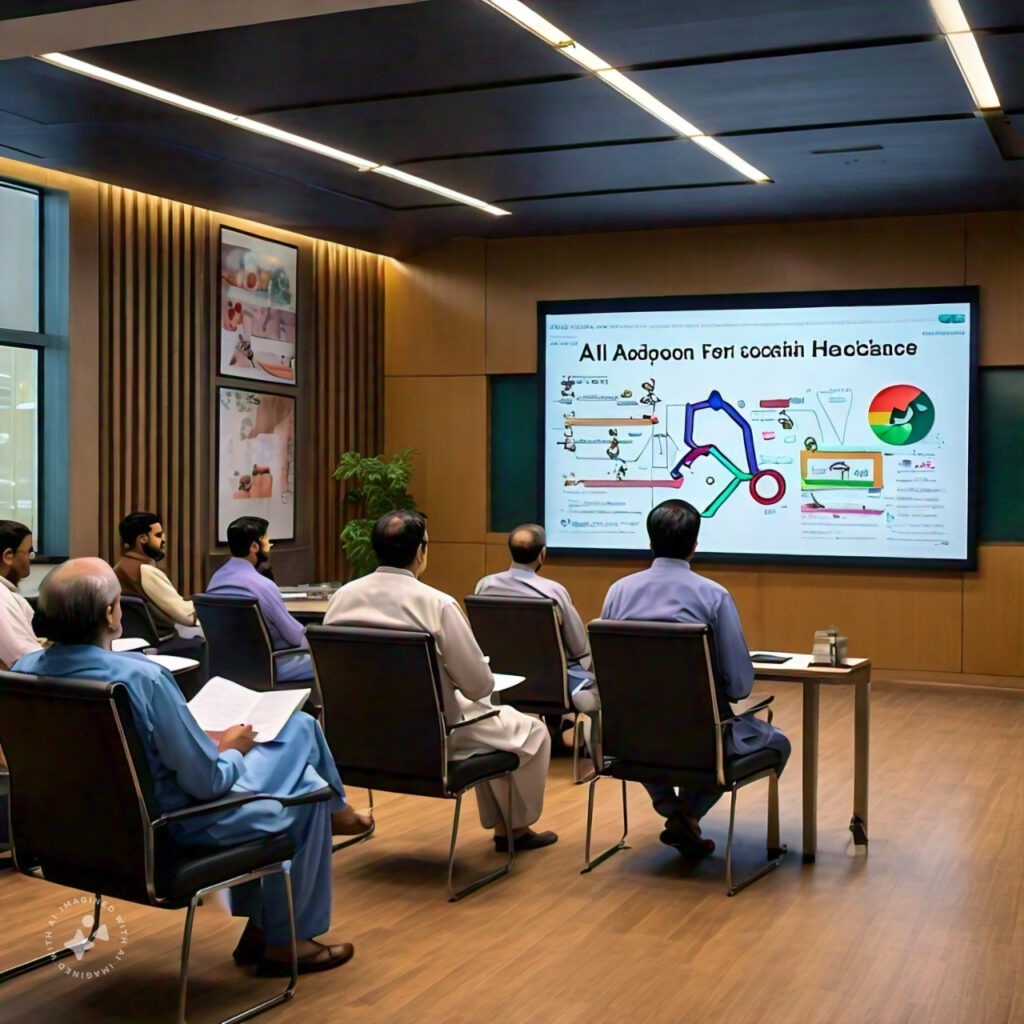Introduction
Artificial intelligence (AI) has revolutionized the healthcare landscape globally, improving patient outcomes, streamlining clinical workflows, and enhancing overall efficiency. However, Pakistan’s healthcare sector faces unique challenges in adopting AI technology. This blog explores the obstacles hindering AI adoption in Pakistani healthcare and proposes solutions to overcome them.
Challenges in AI Adoption in Pakistani Healthcare
1. Infrastructure and Resource Constraints
Pakistan’s healthcare infrastructure struggles with limited resources, outdated equipment, and inadequate IT infrastructure. Insufficient digital literacy among healthcare professionals hinders effective AI implementation. Limited internet connectivity and unreliable electricity supply exacerbate the challenges.
2. Data Management and Privacy
Inadequate data management systems and lack of standardization impede AI-driven insights. Ensuring patient data privacy and security remains a significant concern. Compliance with international data protection regulations is crucial.

3. Regulatory Framework
Absence of clear regulations and guidelines for AI in healthcare creates uncertainty. Compliance with international standards is crucial for AI adoption. Lack of accreditation and certification standards for AI solutions hinders adoption.
4. Talent Gap and Training
Shortage of AI-trained healthcare professionals limits effective technology utilization. Continuous education and training are essential for AI literacy. Attracting and retaining AI talent in the healthcare sector is challenging.
5. Cultural and Social Barriers
Resistance to change among healthcare professionals and patients slows AI adoption. Addressing societal concerns and misconceptions about AI is vital. Cultural sensitivity and awareness are crucial for effective AI implementation.
Solutions for AI Adoption Challenges in Pakistani Healthcare
1. Collaborative Efforts
Public-private partnerships can enhance infrastructure and resource development. International collaborations can facilitate knowledge sharing and best practices. Partnerships with AI solution providers can accelerate adoption.
2. Capacity Building
Training programs for healthcare professionals to develop AI skills. Encouraging research and development in AI for healthcare. Fellowships and scholarships for AI-focused education.
3. Regulatory Development
Establishing clear guidelines and standards for AI in healthcare. Ensuring compliance with global regulations. Regular updates and revisions to regulations.
4. Data Standardization
Implementing electronic health records (EHRs) for standardized data management. Ensuring data privacy and security through robust encryption. Data analytics for informed decision-making.
5. Awareness and Education
Raising awareness about AI benefits among healthcare professionals and patients. Addressing cultural and social concerns through targeted campaigns. Educational programs for AI literacy.

Case Studies and Success Stories
Aga Khan University Hospital’s AI-powered diagnostic tools have improved patient outcomes. Pakistan Institute of Medical Sciences’ AI-driven patient management system has streamlined clinical workflows. Shaukat Khanum Memorial Cancer Hospital’s AI-assisted radiation oncology has enhanced treatment accuracy.
Benefits of AI Adoption
Improved patient outcomes and quality of care. Enhanced operational efficiency and productivity. Better decision-making through data analytics. Reduced costs and improved resource allocation.
Future Outlook
AI adoption in Pakistani healthcare has immense potential. Addressing the challenges and implementing solutions will enhance patient care and satisfaction. Position Pakistan as a leader in healthcare technology and foster innovation and entrepreneurship.
Overcoming Infrastructure Challenges
Investing in healthcare infrastructure development. Enhancing digital literacy among healthcare professionals. Implementing telemedicine solutions for remote areas.
Addressing Data Management Concerns
Developing standardized data management systems. Ensuring data privacy and security through encryption. Implementing data analytics for informed decision-making.
The Role of Government
The government plays a crucial role in facilitating AI adoption. Policy reforms, funding allocations, and regulatory frameworks can support AI integration. Public-private partnerships can enhance resource development.

The Role of Healthcare Professionals
Healthcare professionals are vital to AI adoption. Continuous education and training are essential for AI literacy. Collaboration with AI solution providers can accelerate adoption.
The Role of Patients
Patients must be aware of AI benefits and concerns. Addressing cultural and social concerns through targeted campaigns is crucial. Patient-centric approaches ensure effective AI implementation.
Healthcare Technology and Innovation
Healthcare technology and innovation are critical to AI adoption. Investing in research and development, and encouraging entrepreneurship can drive AI integration. Collaborations with tech startups can accelerate innovation.
Digital Transformation in Healthcare
Digital transformation in healthcare enables AI adoption. Implementing electronic health records, telemedicine solutions, and data analytics enhances AI integration. Digital literacy among healthcare professionals is crucial.

AI-Powered Healthcare Solutions
AI-powered healthcare solutions improve patient outcomes. AI-assisted diagnosis, personalized medicine, and predictive analytics enhance patient care. AI-driven chatbots and virtual assistants streamline patient engagement.
Machine Learning in Healthcare
Machine learning in healthcare enhances AI adoption. Predictive modeling, natural language processing, and computer vision improve patient outcomes. Machine learning algorithms analyze large datasets for informed decision-making.
Natural Language Processing in Healthcare
Natural language processing (NLP) in healthcare enables AI-driven insights. NLP analyzes patient data, medical literature, and clinical notes. NLP-powered chatbots and virtual assistants enhance patient engagement.
Computer Vision in Healthcare
Computer vision in healthcare enhances AI-powered diagnosis. Image analysis, object detection, and segmentation improve diagnostic accuracy. Computer vision applications include radiology, pathology, and dermatology.
AI-Driven Healthcare Research
AI-driven healthcare research accelerates medical breakthroughs. AI analyzes large datasets, identifies patterns, and predicts outcomes. AI-driven research enhances personalized medicine and precision health.
Personalized Medicine and Precision Health
Personalized medicine and precision health rely on AI-driven insights. AI analyzes genetic data, medical histories, and lifestyle factors. AI-driven personalized medicine enhances treatment efficacy and patient outcomes.
Precision Health and Population Health
Precision health and population health benefit from AI-driven insights. AI analyzes population data, identifies trends, and predicts outcomes. AI-driven precision health enhances preventive care and public health initiatives.
AI Adoption Roadmap for Pakistani Healthcare
Developing an AI adoption roadmap for Pakistani healthcare is crucial. Assessing current infrastructure, identifying gaps, and prioritizing solutions ensures effective AI integration.

Implementation Strategies
Implementation strategies for AI adoption include:
- Collaborative efforts among stakeholders
- Capacity building and training programs
- Regulatory development and framework
- Data standardization and analytics
- Awareness and education campaigns
Conclusion
AI adoption in Pakistani healthcare faces challenges, but collaborative efforts, capacity building, regulatory development, data standardization, and awareness can overcome these hurdles. Embracing AI will revolutionize patient care, enhance operational efficiency, and position Pakistan’s healthcare sector for a brighter future.
Final Thoughts
AI adoption in Pakistani healthcare requires a multifaceted approach. Addressing infrastructure, data management, regulatory, talent, and cultural challenges ensures effective AI integration. Pakistan’s healthcare sector must prioritize AI adoption to enhance patient outcomes and quality of care.


